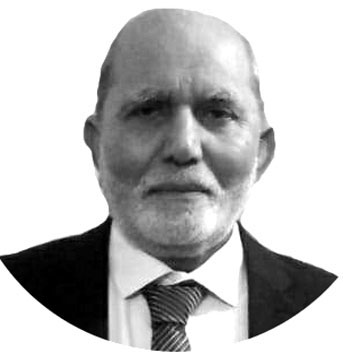US changing attitude and !
IT is noteworthy that the United States on 02 July added Pakistan to the list of Child Soldiers Prevention Act (CSPA).
The US Department of State’s Annual Traffic in Persons (TIP) report lists countries in an effort to curb human trafficking.
This list is compiled annually by the United States and the governments of Afghanistan, Burma, the Democratic Republic of Congo, Iran, Iraq, Libya, Mali, Nigeria, Somalia, South Sudan, Syria, Venezuela and Yemen have been on the list for years.
However, reviewing the manner in which the names of Pakistan and Turkey have been included in the list, observers have said that this alone makes it clear what the US priorities are regarding Pakistan.
Under the law, countries on the list could be subject to other sanctions, including economic, US military aid, military training and cooperation. The law prohibits people under the age of 18 from being included in the “Child Soldier” category or volunteering.
After this extremely negative attitude of the United States, the only way left is for the Pakistani nation to stand strong and united with every special and ordinary government and state so that anti-Pakistan intentions can be thwarted in any case.
Moderate diplomats have taken stock of the situation, saying that the US Administration had been asking Pakistan for more than a year to change its policies towards China and CPEC or else Pakistan would have to suffer the consequences.
But the deep ties that the government and people of Pakistan have with their long time friend are no secret.
In this context, addressing the 100th anniversary of the Communist Party of China on 01 July, Chinese President Xi Jinping said, “No one should underestimate the potential of the Chinese nation to safeguard national security and territorial integrity and if foreign powers (the United States and its allies) try to dominate or bully China, we will smash their heads on the Great Wall of China.”
Observers have reviewed the situation and said that the briefing on various aspects of national security held two days ago was welcomed by almost all sections of the nation.
In this regard, a comprehensive review of the situation has shown that the manner in which the opposition and members of the government have shown tolerance in the said meeting can only be described as a positive attitude.
It may be argued, however, that if the Prime Minister himself had attended this important meeting, the message around the world might have been more effective.
In any case, it would be appropriate to call the manner in which the entire military leadership fully participated a sign of national good fortune.
Serious observers of the situation are of the view that there should be no doubt that the defence forces are indeed a key player in national security and survival and that they are fulfilling all their responsibilities in this regard.
But it is important to note that in today’s world, wars are not only fought by military force, but also by economic factors.
Just three decades ago, the (former) Soviet Union, despite its vast military resources, was forced to retreat under its own weight, and the United States itself is on its way back.
It is noteworthy that many factors such as food security, environmental pollution, artificial intelligence, cyber security, religious and cultural harmony, professional tolerance play a key role in the stability of any state. Economic inequality leads to unemployment, the consequences of which are poisonous.
A balanced foreign policy also guarantees the stability of the state and the development of any society.
It is important to keep in mind that no good state can afford confusing policies on all these issues, especially foreign policy.
The recent successes of Operation Zarb-e-Azb and Radd-ul-Fasaad are a shining example in this regard.
However, in the meantime, the National Action Plan has shown some leniency. It is gratifying that the situation is now showing signs of improvement, but much remains to be done.
It would be better to keep in mind that India and some other powers are bent on destabilizing Pakistan at all costs, the manifestations of which are coming to the fore in Baluchistan, South Waziristan, Sindh and other parts of the country.
The manner, in which the Indian media, in just half an hour of the Lahore terror attack, displayed its traditional viciousness and hostility towards the issue, is in itself a telling picture of Indian intentions.
It is to be hoped that the entire civil society, the nation and the concerned circles will play a more effective role in this regard.
On the other hand it is interesting that The New York Times published an advertisement for the need for its correspondent in India, with the basic condition for journalists applying not to be influenced by the fanatical Hindu mentality.
The advertisement said that Narendra Modi was promoting a violent mentality to appease the Hindu population of India, which was seriously affecting personal freedom.
The global newspaper writes that the Hindu mentality raises serious questions about Indian integrity and future, we need a representative who is not influenced by this mentality and has the courage to speak openly on the issue of Akhand Bharat and RSS.
There is a storm of insults in the Indian Hindi media against the advertisement of the prominent newspaper and it is being said that the US government has a soft spot for India because of its own interests but the world media has full information about the growing Hindu extremism in India.
—The writer, a freelance columnist, was Research Fellow in Islamabad Policy Research Institute and Researcher in Centre for South Asian Studies, Punjab University Lahore.










